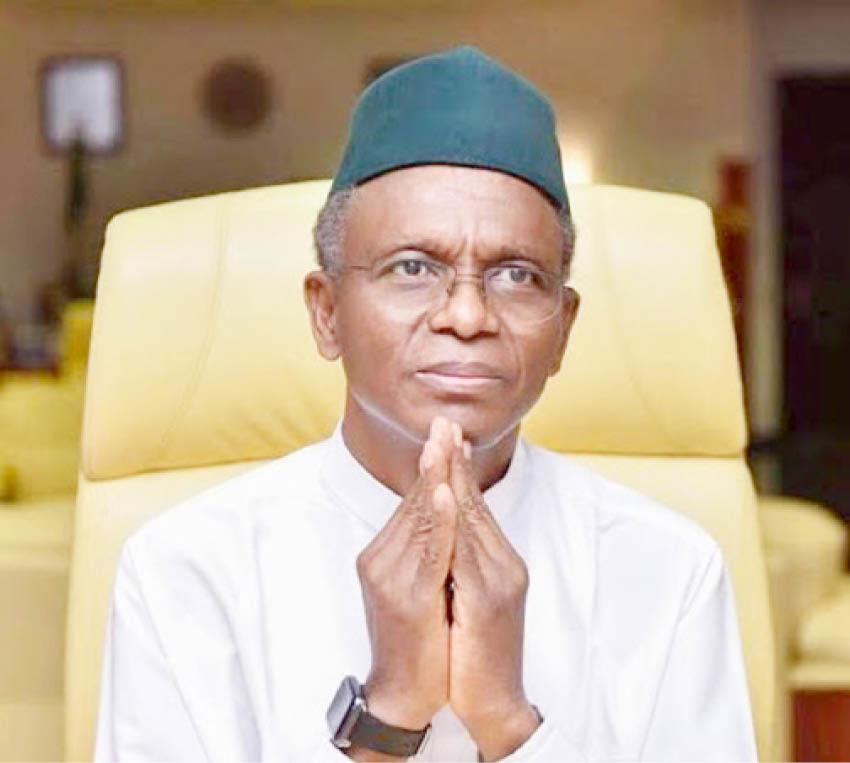In his magnum opus, The Accidental Public Servant, Malam Nasir Ahmad El-Rufai, governor of Kaduna State, wrote: “As things stand currently, we have surrendered the bulk of our political space to the dishonourable, the incompetent and worse, to the criminally-minded. This is the basic problem of Nigeria.”
Indeed, so. The political space is where it matters. It is the space that grows leaders who determine the path of a nation’s development. Where space is occupied largely by misfits with two left hands, it is unrealistic to see leaders who lead. We have a collection of expensive babar-riga wearing little minds with narrow or no vision and no focus and no clue about what focused development entails. A nation with the potentials of Nigeria that keeps jogging on one spot is a sorry victim of the irony of leaders who are unable to provide leadership. Because we have surrendered our right to choose our leaders to money and the godfathers.
I recall this piece in his introduction to his book because a) it resonates with me and b) it raises at least two fundamental issues that continue to prevent our nation from fully rising to its potentials, given our natural and human resources endowments. One of the critical issues is our leadership recruitment process. It is badly flawed and continues to burden the nation with those least prepared to lead us at all levels of government. In saying so, I do not lose sight of the fact that all our leaders were and are God-sent. It would be unwise to question the wisdom of God. But it makes sense to interrogate the role that money and godfatherism play in the flawed leadership recruitment process if indeed, recruitment process it is.
Money and godfathers are the demons we contend with here. If you have money or/and a godfather, you can occupy a choice political space in the executive and the legislative branches of government. Senator Nuhu Aliyu, a retired deputy inspector general of police, once said on the floor of the Senate that he was shocked to see men he had prosecuted for various offences sitting with him and others and purporting to be competent to make laws for the good governance of Nigeria. We can cynically offer the explanation that perhaps, the man who has had a brush with the law and beaten it is in a good position to know the type of law that works and the type that does not in our country.
The second point arising from El-Rufai’s assertion is that we saddle our country with rulers, not leaders. There is a world of difference between rulers and leaders. All human societies need leaders much more than rulers. I am not unmindful of the fact that many years of military rule have blurred the distinction between ruling and leading. Some of our state governors are still fascinated by the magic phrase employed by the military, to wit, with immediate effect. Indeed, some of them do not quite seem to know if they are civilian rulers or military men clad in expensive mufti.
Rulers are generally dictator pikins. They are given to doing things that serve their short-term political interests but ultimately short-change the people. They do things that win them applause. On the other hand, a leader acts in the current and future interest of the people. He does not seek applause and is, therefore not afraid of taking harsh but necessary decisions provided he is reasonably sure that it would ultimately be in the interest of the people he leads. As a leader, he encourages dialogue between himself and the people. He does not ram poorly conceived decisions down the throats of the people. He may not always be right, but his decisions quite often reflect multiple inputs from the people.
El-Rufai’s recent tiff with labour over his downsizing of the state public service is a good example of a leader who is prepared to face the facts and take decisions that may not be popular but are nevertheless necessary. To start with, our public services have always been bloated, making federal and state governments the largest employers of labour. This is a political necessity forced on state governors who are obliged to reward those who helped them up where they are. Sons and daughters as well as the relations of politicians with access to governors are given jobs in the state civil servants even when there are no vacancies. It is not unusual to find ten people given the job of one man. All of them idle away in their offices but get their pay at the end of each month. If this is not an unnecessary burden on the system, I know not what it is.
It bears repeating that federal and state government spend some 80 per cent of their annual budgets on the payment of salaries of civil servants and political appointees who constitute, according to experts, less than five per cent of the workforce. There is thus not much money for capital expenditure despite the grandstanding of the federal and state governments embarking on infrastructure developments often caught up in various stages of incompletion. This is not sustainable. The politicians know it but the imperatives of political survival prevent them from doing the right thing.
I still remember when capital votes were much higher than recurrent votes in our recent history. We have turned the table and continue to cause enormous injury to our national development at federal and state levels. No country or state can develop its infrastructures with recurrent expenditure. Capital votes help to reflate the economy and expand jobs and other economic opportunities in the private sector.
The bloated civil service has been a crushing burden on every state government for as long as anyone can remember. Under our unified federal system, the states pay uniform salaries to their civil servants. Jigawa, a poor state with nary internally generated revenue must pay the same salaries and allowances as Lagos, the richest state in the country that earns in one week what Jigawa cannot earn outside its share from the federation account in ten years.
What El-Rufai did was to slightly reduce the financial burden on the state purse. His critics said the timing was wrong. They may have a point but there is actually no right time for any harsh decisions. Whenever they are taken, there would be casualties. No one is oblivious of the fact that throwing out civil servants would swell the number of the unemployed and create room for the newly unemployed to find accommodation among the various armies of criminals. It is a catch-22 situation, to be sure. The options constitute a huge dilemma. If you keep the bloated civil service, you also create armies of unpaid civil servants who might use their official positions to oil the wheels of corruption. I can think of no state governor who would dare do what El-Rufai has done. Rats would rather stay safe than bell the cat. Nothing is going to change in how we manage our economy.
Down-sizing is a feature of management in both the private and the public sectors of the economy. It is usually forced on employers by developments in the economy. The private sector is freer to act to protect the interest of investors. The public sector, beholden as it is to the imperatives of political survival, does not enjoy the same freedom.
We are really in a dilemma. At the last count, 31 states were said to owe their civil servants salary arrears of between seven and nine months. Those states too owe their pensioners arrears of between 24 and 36 months. When President Muhammadu Buhari came in, he granted the hard-hit state’s bailout funds to pay up the arrears of salaries. No such help is now forthcoming. The generous flow of money from the federation account has dwindled to a trickle.
Still, fearing political repercussions, the states keep their bloated workforce in place but drive their civil servants into debts, frustration, and despair. No leader wants the people to suffer. Down-sizing is not a punitive measure; it is a survival measure. This is not strange to us either. It was a regular occurrence with a change of government during the military regime.
Ahmad El-Rufai dared to make that point to let the people to appreciate his dilemma. It takes courage to dare but those who dare always make a positive difference in their countries. If our political leaders do nothing to turn the table of public expenditure in favour of capital expenditure, the state of our national economy would remain parlous and give free reins to corruption in the home of corruption.

 Join Daily Trust WhatsApp Community For Quick Access To News and Happenings Around You.
Join Daily Trust WhatsApp Community For Quick Access To News and Happenings Around You.


